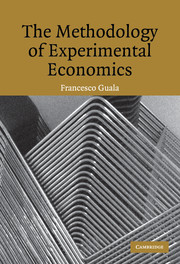Book contents
- Frontmatter
- Contents
- Analytical Table of Contents
- Acknowledgments
- 1 Introduction
- PART ONE INFERENCES WITHIN THE EXPERIMENT
- 2 Inside the Laboratory
- 3 Hypothesis Testing
- 4 Causation and Experimental Control
- 5 Prediction
- 6 Elimination
- PART TWO INFERENCES FROM THE EXPERIMENT
- Appendix A
- Appendix B
- Bibliography
- Index
6 - Elimination
Published online by Cambridge University Press: 10 December 2009
- Frontmatter
- Contents
- Analytical Table of Contents
- Acknowledgments
- 1 Introduction
- PART ONE INFERENCES WITHIN THE EXPERIMENT
- 2 Inside the Laboratory
- 3 Hypothesis Testing
- 4 Causation and Experimental Control
- 5 Prediction
- 6 Elimination
- PART TWO INFERENCES FROM THE EXPERIMENT
- Appendix A
- Appendix B
- Bibliography
- Index
Summary
The attempt to ground inductive support on the predictive success requirement faces some serious objections. Such a project seems to miss a crucial element in confirmation, namely the background conditions (Ki) that allow us to forge a tight link between the evidence (e) and the hypo-thesis under test (H). Unless we model the Ki in the relation of inductive support, our theory of induction will be unable to explain the advantages of controlled experimentation over nonexperimental methods of investigation. In experimental science, the Ki can be systematically checked and thus possible sources of error eliminated. In this chapter, I further elaborate this idea and illustrate its virtues using the example of preference reversals.
Subjective Bayesianism
I have said repeatedly that a satisfactory philosophy of experiment should account for the privileged status of controlled experimentation among the various methodologies that scientists use. It might be instructive then to start with an approach that recognizes the importance of background assumptions for induction, but fails to draw a sharp distinction between experimental and nonexperimental evidence. It is the subjective (or “personalist”) Bayesian approach, which during the eighties was on the verge of becoming the standard view of inductive inference in philosophy of science. Economists should be familiar with its main characteristics, because agents' beliefs and preferences in standard economic models are represented in subjective Bayesian terms. But whatever its virtues for modeling economic agents, this approach is not adequate for a theory of scientific inference.
- Type
- Chapter
- Information
- The Methodology of Experimental Economics , pp. 110 - 138Publisher: Cambridge University PressPrint publication year: 2005



